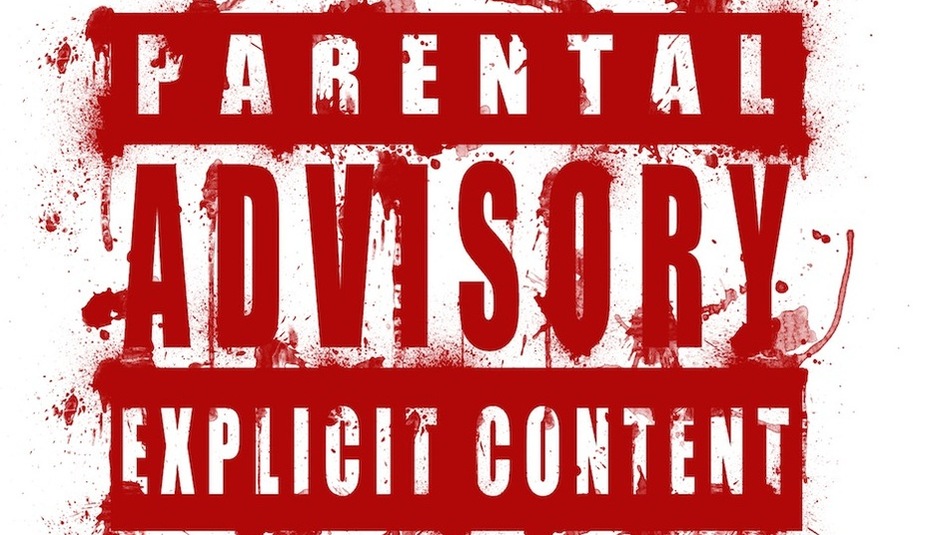“Won’t someone please think of the children?” That plaintive cry, made famous by the Simpsons’ Helen Lovejoy, has been heeded by none other than Prime Minister David Cameron. Fresh from his success at lobbying Internet service providers to block “adult content” by default, in August he turned his attention to music videos. Concerned by the raunchy, violent imagery in videos from the likes of Rihanna, Miley Cyrus, and Maroon 5, he outlined how “from October, we're going to help parents protect their children from some of the graphic content in online music videos by working with the British Board of Film Classification, Vevo, and YouTube to pilot the age rating of these videos.” Justifying the scheme, he claimed: “We shouldn't cede the Internet as some sort of lawless space where the normal rules of life shouldn't apply…if you want to go and buy a music video offline there are age restrictions on it. We should try and recreate that system on the Internet."
Even though the scheme is now operational, you’d be forgiven for not knowing about it until now. That’s mainly because the whole concept comes subject to several large caveats. Firstly, it only applies to artists signed to UK labels. Secondly, it’s entirely voluntary on the part of YouTube and Vevo, who’ve also stated that it will be some time – probably after Christmas – for the technical changes to take place. And while Sony, Universal, and Warner Brothers have all signed up, it remains to be seen exactly how strict the Board will be, whether labels will enforce cuts, and how exemptions will be handled.
But it’s already prompted a wider debate about censorship in the Internet age, and what many see as the continuing sexualisation of teenagers for profit. Ostensibly a protective measure – nobody wants their child to be watching what is, in effect, soft porn, right? – some claim that this is just the latest example of the creeping Nanny state, and that slapping 18 certificates on videos will make them even more sexy and dangerous in the eyes of the young. Others see it as less of a censorship issue, and more about curtailing the blatant use of such imagery as a marketing tool. “I think there are so many gratuitous videos that use NSFW imagery to up their views, and I’m so tired of it,” Liv Evans, co-founder of De La Muerte Films, recently told the Guardian, and she may well have a point.
We asked Jude Clarke and Derek Robertson to tease out the finer points of the debate and decide whether this is a worthwhile initiative, or an unnecessary intrusion into artistic freedom and integrity.
JUDE: Well, where to start? I object to this for so many reasons that it’s difficult to pick just one. How about the fact that it simply won’t work? Or that initiatives like this don’t solve anything, but just allow politicians to posture and be seen to be doing something about “society’s problems”? Or about the fact that not all sexual/sexy imagery in videos is a bad thing, and that this kind of blunt-tool censorship will, inevitably, end up getting it badly wrong, screening out the positive, empowering messages along with those deemed more “harmful”?
Once again, here we have what I predict with some jaded certainty is going to be a bunch of old white men policing, largely, women’s bodies: what they may and may not wear, how they may and may not be depicted, the stories they may or may not tell in video. Seriously, would you trust these dudes with your musical culture? Do you think what Madonna was doing in the 1980s was “harmful” to young people? Cos you can bet that some of her videos would have had an 18 certificate slapped on them. I think the risks of this process are greater than any tenuous advantages that are been mooted from it.
And lastly – if you’re the parent of a younger child, you ought to monitor their damn internet access anyway. Slapping certificates on certain bits of the internet will NOT make it better/safer/healthier for kiddies, and is just an open book for political bloody interference in something about which the people in power don’t understand. Again.
DEREK: I agree with a lot of what you say. It obviously won’t work, and I’m quite sure that those who dreamt up this scheme and are tasked with implementing it will make a pigs ear of it. But at the same time, I think the core idea – that certain videos have gone too far, will continue to go too far, and that they should no longer be free from the type of restrictions that are routinely applied to video games and films – is a sensible one. If we take the view that certain imagery and language is unsuitable for children – and I haven’t come across too many people arguing that film and video game classification should be relaxed; in fact, it’s the complete opposite, and many claim that age ratings are not strict enough – why shouldn’t we monitor all multimedia content in the same way? Should a twelve year old be able to watch Rhianna fellate a banana at 11am on a music TV channel? Should Lady Gaga and R Kelly be free to act out a drug rape scenario?
I'm all for freedom of expression, and I agree that not all sexual/sexy imagery is necessarily bad. But, and this is crucial, the type of images you are referencing are not the ones that are causing controversy or outrage. I defy anyone to tell me that these videos are showcasing "positive, empowering messages" – they are titillation, pure and simple, story boarded from the ground up to be shocking and to generate as many column inches as possible. Why else would Miley be licking a hammer? And I'm not buying the Madonna comparison either; sure, some of her work was a bit racy for its time, but it looks like Mary Poppins next to some of today's starlets' porn-in-all-but-name efforts.
JUDE: But there were serious calls for Madonna’s oeuvre to be banned at the time! That’s my point. Moving on, though, I honestly don’t think putting measures in place that might stop a 12 year old watching a Rhianna video online will effect any real or meaningful societal change.
Women are routinely objectified in some of the largest and most profitable corners of the music industry, as they are in the wider world. I think the theoretical 12 year old should be able to slowly become aware of this, while his or her musical tastes, ideas about sex and sexuality and understanding of the world develop. An 8 year old? A 6 year old? Not so much. But that, once more, comes back to the role of a parent or carer, not – please god, no – the state and its appointees telling us all what’s acceptable art and unacceptable art.
If issues of stereotyping of sexuality are a concern, then I say one should argue, discuss, campaign around wider issues. I have a problem with using the term “sexualisation” when applied to teens (is there a demographic that isn’t – naturally – as highly sexualised as teenagers? The terms just sounds like “sex” per se is something wrong or problematic, as opposed to stereotyping and exploitative depictions of same), but let’s use this kind of debate to – I dunno – analyse a Pharrell video in Year 9 media studies, or get a couple of teens to blog what they feel Lady Gaga says to them.
DEREK: Women are, sadly, routinely objectified in many areas of society – sex really does sell. But it’s a very particular type of woman, or feminine ideal, which is portrayed in all these videos, and the image given is that of the ideal woman from the perspective of what men want. Hence you get the voluptuous lips, zero body hair, push-up bra, ridiculous heels, that louche, come-hither look that stares back at us from countless billboard and magazine adverts…couple that with today’s modern pop, and it’s a potent combination. As you say, stopping a 12 year old viewing it online might not make much of a difference, but it’s a start, and a start needs to be made.
You suggest that what will happen is “a bunch of old white men policing, largely, women’s bodies: what they may and may not wear, how they may and may not be depicted, the stories they may or may not tell in video”, but to me, ratings and restrictions may well stop those same old white men from exploiting the bodies of young, fame hungry, desperate-for-success female artists for monetary gain – remember, who was actually behind the ‘Wrecking Ball’ video? And if you’re worried about the BBFC lumping FKA Twigs’ videos in with Robin Thicke’s, then I just don’t see it happening – they do a pretty job good of distinguishing between the likes of 9 Songs or Kids, and full-on porn.
As for the wider of issues of stereotyping and conversations around what's acceptable and not in art, I’m not sure we have the space to go into that fully here. I definitely agree that we’re a long way from having an education system that deals with these issues in a way that speaks to modern teenagers, and takes into account the problems they face on a daily basis. But, in saying that, I still believe that rating such videos is a (long overdue) step in the right direction, and at least sends the signal that tweens are no longer fair game for unscrupulous marketing departments.
JUDE: I think we’re going to have to agree to disagree, and wait and see whose view turns out to be proved correct: yours (IMO an overly optimistic one), that these state-appointed censors will have the subtlety and sense to only award punitive 18 certification to the “wrong” type of sexual content, or my cynical one that they’ll fail woefully, blocking important, brave, artistic depictions of some of life’s grittier stories, that deserve to be told as part of art-music-film collaborations along with the tawdrier pieces of high-gloss sub-porn.
When Cameron said that “We shouldn't cede the Internet as some sort of lawless space where the normal rules of life shouldn't apply", he missed the point, too, I think. The Internet shouldn’t be lawless, perhaps, but its existence has changed so much in terms of how people access, consume and even produce art and creative content that the “normal rules” (whatever the hell they are, or ought to be) can’t just be picked off the shelf and applied in the same way to it. We need to think harder, more seriously and carefully, and work out first of all IF (a big, capped-up IF) such regulation of content ought to be applied to such content and then, HOW – realistically, honestly and sensibly – that might happen in this very young, very evolving medium. And no, stopping 12 year olds looking at mucky pop music videos isn’t “a start” – it’s a start down what I believe is the wrong route.
DEREK: Again, I fail to see why music videos should be beyond the reach of censors or excluded from a framework that attempts to police the type of images that are freely available to – and often directly aimed at – young, impressionable teenagers. Despite all the outcry over this scheme, I don't see many people lining up to castigate the editorial guidelines for words that TV and radio deem too caustic for vulnerable ears, a form of censorship that's surely far more draconian than a few 18 certificates.
Of course, everyone is still trying to work out how the Internet works, how – or even if – It can be policed, and what sort of limits should be placed on "content". The old systems – of copyright, censorship, monetization etc - have all but disappeared, leaving a vacuum that can sometimes seem like the Wild West. How society deals with that is one of the biggest challenges of the next few decades, not just with regards to censorship, but with the relationships people have to social media and online interactions. Who knows what will become of it, and us, but I certainly don't hold to the idea it's a "free" space, one that should be free from all forms of control, government or otherwise; that sounds like anarchy to me. But that's a whole other debate, one best left to think tanks and PhD students with the resources to do proper research.
Part of my feelings towards this entire topic – and music videos are far from the only, or even worse, culprit when it comes to debauched imagery and sex/porn as a marketing strategy – come from watching my three step sisters grow up idolizing, and copying, exactly what they see in videos and magazines. It's very disconcerting watching a 14 year old strut around in hyper-revealing dresses like a sexual predator, knowing she has neither the maturity nor the life experiences to deal with the situations such behaviour might lead to. As you say, teenagers are, and always have been, innately curious and "highly sexualised", but I've witnessed a massive change from when I was that age, which really wasn't that long ago. There are a large number of respected, academic studies that demonstrate just how harmful the "pornification" of such videos and false representations of beauty can be with regards to children’s and adolescent’s attitudes to sex and relationships. A few age ratings may be a drop in the ocean, or not even that effective, but I worry we're fast approaching the point where something - anything - is better than the status quo.






















